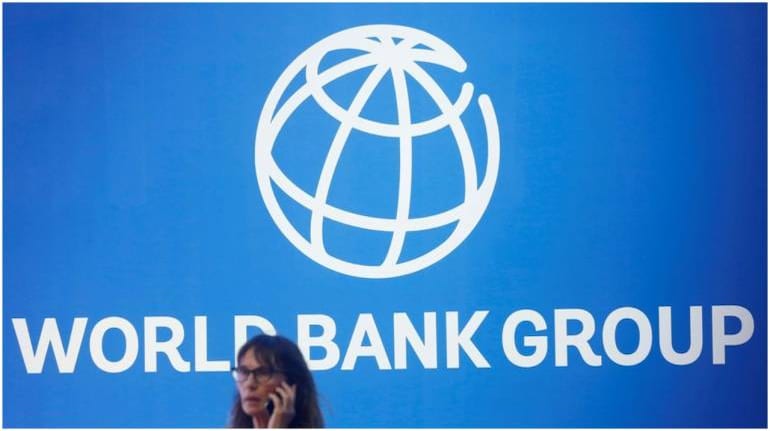
The World Bank has slashed its growth forecast for India for the current financial year to 7.5 percent, a hefty 1.2 percentage points down from its previous forecast of 8.7 percent.
Writing in its latest Global Economic Prospects report, released on June 7, the World Bank said it cut India’s GDP growth forecast due to headwinds from rising inflation, supply chain disruptions, and geopolitical tensions.
The bank sees India's growth slowing further to 7.1 percent in FY24. This is 30 basis points higher than the previous forecast of 6.8 percent. For FY25, GDP growth has been pegged at 6.5 percent. One basis point is one-hundredth of a percentage point.
While the downward revision in the growth forecast for FY23 is large, it remains higher than local projections. The Reserve Bank of India (RBI), for instance, has pegged GDP growth for FY23 at 7.2 percent. There is a chance this figure may be lowered on June 8 when the Monetary Policy Committee (MPC) announces its latest interest rate decision.
As per the statistics ministry's first provisional estimate, India will likely clock a GDP growth of 8.7 percent in FY22.
India is not alone in facing a weaker growth outlook, with the World Bank saying the world economy "is again in danger".
"Compounding the damage from the COVID-19 pandemic, the Russian invasion of Ukraine has magnified the slowdown in the global economy, which is entering what could become a protracted period of feeble growth and elevated inflation," the World Bank said.
"Even if a global recession is averted, the pain of stagflation could persist for several years unless major supply increases are set in motion… Several years of above-average inflation and below-average growth are now likely, with potentially destabilising consequences for low- and middle-income economies."
Consequently, a raft of downward revisions has been made by the World Bank, with the global economy now seen growing 2.9 percent in 2022, down from 4.1 percent forecast in January.
| World Bank growth forecasts | |||
| Region | 2022 | change in 2022 forecast | 2023 |
| World | 2.9% | -1.2% | 3.0% |
| US | 2.5% | -1.2% | 2.4% |
| Euro area | 2.5% | -1.7% | 1.9% |
| Japan | 1.7% | -1.2% | 1.3% |
| China | 4.3% | -0.8% | 5.2% |
| Russia | -8.9% | -11.3% | -2.0% |
| Brazil | 1.5% | +0.1% | 0.8% |
| South Africa | 2.1% | no change | 1.5% |
These include a prolonged period of highly accommodative monetary policy in major advanced economies followed by persistent supply-side disturbances pushing inflation higher. However, certain differences exist too, including several central banks having explicit inflation targets.
This, according to the World Bank, is unlikely to prevent inflation from remaining above target in many economies.
As such, if inflation remains elevated, "a repeat of the resolution of the earlier stagflation episode could translate into a sharp global downturn along with financial crises in some emerging market and developing economies".
According to the report, reducing the risk of stagflation requires "targeted and impactful" measures by policymakers globally which must begin immediately. These measures are:
1 Limiting the harm to people affected by the war in Ukraine by sharing the burden of housing, supporting, and the possible relocation of refugees and internally displaced people
2 Countering the spike in oil and food prices by boosting supply and avoiding export and import restrictions,
3 Stepping up debt-relief
4 Strengthening health preparedness and effort to contain COVID-19
5 Speeding up the transition to low-carbon energy sources
"There is good reason to expect that, once the war in Ukraine stops, efforts will redouble—including by the World Bank Group—to rebuild the Ukrainian economy and revive global growth.
“In the meantime, policymakers everywhere must fight the world's other development crises: the catastrophe of higher food and energy prices, the threat of stagflation, the rise in inequality and instability, climate change, and the growing overhang of debt," the World Bank said.
Discover the latest business news, Sensex, and Nifty updates. Obtain Personal Finance insights, tax queries, and expert opinions on Moneycontrol or download the Moneycontrol App to stay updated!